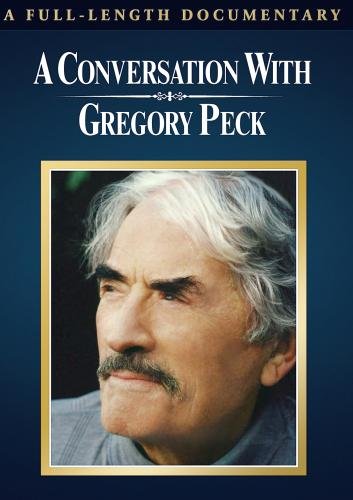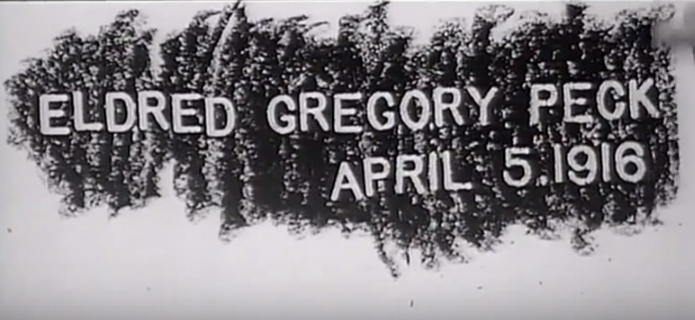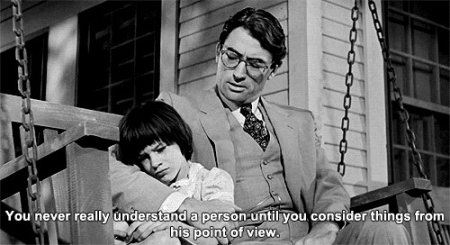Doc Corner: A Conversation with Gregory Peck on His 100th Birthday
 Tuesday, April 5, 2016 at 11:00AM
Tuesday, April 5, 2016 at 11:00AM Glenn here. Each Tuesday we bring you reviews and features on documentaries from theatres, festivals, and on demand. This week we’re looking at a documentary about Gregory Peck for what would have been his centennial birthday.
 “It takes ten pictures to make a star”, says the subject of A Conversation with Gregory Peck quoting Carole Lombard. It’s a statement worth reiterating today for any number of reasons, not least of all because there are few actors these days who epitomise the word ‘star’ better than Peck. It happens several times throughout this 1999 documentary where people refer to the Oscar-winning actor as a shining example of humanity and a beacon for what people ought to strive for. He was, and still is, a star.
“It takes ten pictures to make a star”, says the subject of A Conversation with Gregory Peck quoting Carole Lombard. It’s a statement worth reiterating today for any number of reasons, not least of all because there are few actors these days who epitomise the word ‘star’ better than Peck. It happens several times throughout this 1999 documentary where people refer to the Oscar-winning actor as a shining example of humanity and a beacon for what people ought to strive for. He was, and still is, a star.
This career overview and remembrance by Barbara Kopple offers Peck the same sort of dignity and respect that the director has afforded all of her subjects throughout her career including striking coal miners, meatpackers, and the Dixie Chicks. Much like Becoming Mike Nichols, which we looked at last week, A Conversation with Gregory Peck centers around a collection of talks the actor gave to audiences across America in Boston, Buffalo, Virginia and more. Peck would sit on stage and offer stories and anecdotes while dutifully answering audience questions and requests for autographs (he’s even more of a consummate professional to do entire Q&As without a moderator – those are tough). They act as a comforting storytelling device, the grandfather in the armchair telling stories of how he met his second wife, a journalist, after she ditched an interview with Albert Schweitzer to meet him for lunch in Paris, how he gave up thoughts of a career as a priest, and how the climactic gag of Roman Holiday’s mouth of truth scene was improvised.





